Recently, the Christian Science Monitor ran this article examining the ways museums are engaging with their communities on a number of fronts. The reporter chose one quote from James Chung (co-author of the CFM report Museums & Society 2034), out of a long interview, that makes it sound like collections vs. community focus is an either/or proposition, with collections on the losing end. Chris Norris picked up on this in his blog Prerogative of Harlots, after being irritated by some of the enthusiastic responses it drew on a friend’s Facebook page. Speaking of the Peabody Museum of Natural History’s after-school program that gets local high school students to work with collections, Chris says:
“We’ll never abandon programs like this because we have a responsibility to maintain and improve access to our collections. We also have a responsibility to care for those collections, so that future generations can access them. At the same time, because we are a museum, our activities, public or otherwise, are collection-centered. Museums are all about objects and collections. If not, we wouldn’t be museums. We’d be galleries, or science centers entertainment venues or research institutes; schools or retail outlets.”
James and Chris aren’t really disagreeing, but they’re looking at museums from very different perspectives—a researcher working with museum visitors, who for the most part only see and appreciate what is on exhibit, versus a collections manager aware of the hundreds of thousands of valuable research specimens that will only ever be seen by specialists.
But this dust-up dramatizes how hard it is to find common ground to discuss something as fundamental as the primary focus of a museum, and strikes at the heart of a controversy that has come up again and again over my years at AAM. What is a museum? As a group, do we really have one unique element or set of characteristics that unite us as a field, while distinguishing us from other types of organizations? Are children’s museums (three-quarters of which do not own or use collections) really in the same business as art museums? What about science centers? How much do museums that primarily exist to serve the general public have in common with museums like the Peabody MNH, where the majority of the collections serve a specialized community of researchers?
And collections are just one parameter—there are many others, some very complex and hard to characterize. For-profit museums like the International Spy Museum or the Museum of Sex look just like any other museum to their visitors, but their governance, accountability, and regulatory environment are so different that the National Standards and Best Practices for U.S. Museums don’t cover them.
I have dodged the question “what is the definition of a museum” for years, by referring inquirers to this wonderful compendium of museum definitions compiled by John Simmons. I didn’t think it necessary to grapple with myself because I was not convinced it was important enough to justify the hours I have heard people argue about it. Now I’m coming round—if we are going to present a united front as a field, decide on common performance metrics on which we should be judged, and collect and report data about “us” we need to tackle this question. Even if we end up agreeing there are different definitions for different purposes.
So I am going to turn the question around and throw it open to the wisdom of the crowds. Have at it, guys. Are museums, as Chris says, “all about objects and collections,” or are they about any interpretation of the world in a physical environment (as another friend of mine contends). How will increasingly sophisticated technology affect our definition–does a virtual museum that provides digital information about real objects (like the Virtual Museum of Surveying) belong to our field, while a physical museum that presents only wall text does not? If being a museum requires collections, how many objects does it take? One? A dozen? What about a museum like the Museum of Jurassic Technology or the Umbrella Cover Museum where the objects are, in many ways, just props to unhinge your mind and force you to question the nature of truth and authority? Go to it…start with your comments here, and we will find the best way to continue the discussion.

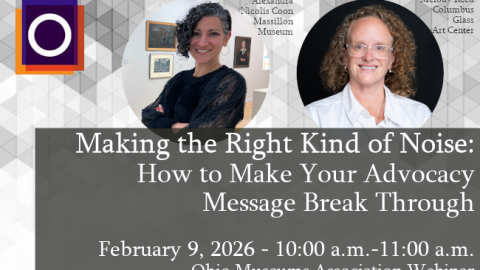

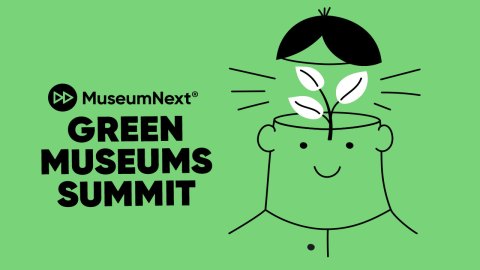
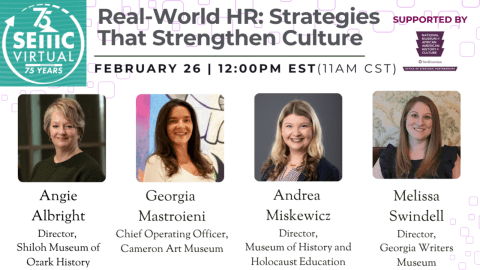
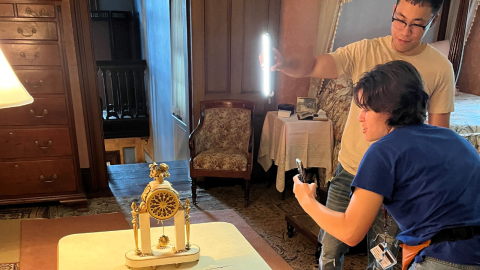

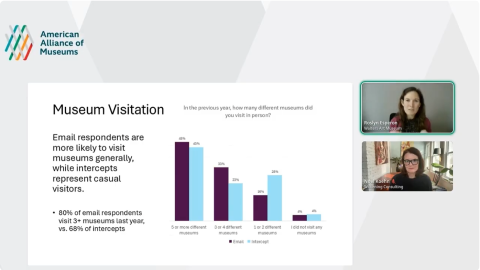
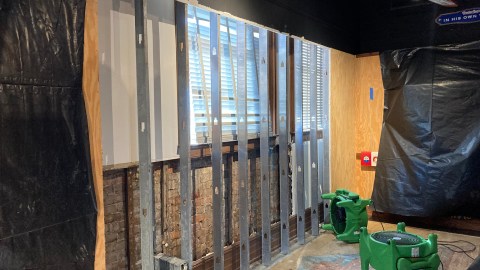
As a museum educator I am inclined to say that the purpose of a museum is educational; and the thing that distinguishes it from other centres of education is that it preserves, studies, displays and gives access to examples of material culture.
I know that is fairly loose, but it has always worked for me.
Are books "examples of material culture" and if so, would this definition include libraries with museums? 🙂 Conversely, it would exclude non-collections using mueums (unless you are going to use the loophole that the plastic fruit in the grocery store of a children's museum constitutes "material culture." Now, in your framework, these might both be acceptable outcomes, but it doesn't mesh with the usual intuitive grouping.
N.B. biologists, mineralogists, paleontologists, etc., will point out that what they study doesn't count as material culture
N.B. biologists, mineralogists, paleontologists, etc., will point out that what they study doesn't count as material culture
As a paleontologist, I would actually disagree with that statement although I won't deny that I admit that I am probably the minority. Blame it on my liberal arts education. Science is a cultural practice–just one that seeks to make robust, repeatable statements about non-cultural phenomena. When fossils, minerals or biological specimens are removed from their "natural" context they become material culture even if they aren't altered or modified (though often they are treated, prepared, reconstructed, labeled, displayed etc.)
Don't get me wrong: I am not arguing that science is simply modern mythology or "socially constructed" (in the pejorative postmodern sense) but museum collections surely operate within a broader social context.
Similar to Graeme's definition, It seems to me that museums are generally operate with the express aim to cultivate appreciation, understanding and discovery through sensory interaction with objects or exhibits.
Perhaps that is too vague to be meaningful and I agree that there is some difficulty in excluding libraries from this definition – one obvious distinction is that libraries usually loan out portions of their collections to individual patrons while museums generally do not (but they do loan to researchers obviously). Zoos and aquaria constitute another gray area: are they just museums with living collections or are they something else entirely?
Like Graeme, my background is educational/content based. I have always felt a resonance from the idea that museums are the places where we keep our collective understanding of the world around us – our 'stuff' (material culture)
– our knowledge
– our perspectives (cultural mores, art, history/philosophy…)
That sounds so abstract as to be not helpful – so let me try a different way: Museums fill the role of gatherers, protectors, and sharers of what makes 'us' us.
As for the question of books… there are certainly books in collections, but maybe the difference is that most books are interpretations of the above, but not them. (As are exhibitions, btw).
To this definition, the sharable content of children's museums is often cultural (how to shop, what a firetruck looks like and what it is for) and science museums share our (usually) current understanding of how the world works. While some principles are unchanging (penny well, anyone?), many science museums aim to bring current and new discoveries into their exhibits as well.
Anyway, something to chew on.
KB
Interesting that you mention the Museum of Jurassic Technology, because I am a fan of their definition of the museum as a 'center for the muse'. (To paraphrase). Intriguingly you can define that in as many ways as you'd like.
However, as I am the person who so offended Chris Norris I thought I should comment. Firstly, to be fair to Chris he might not have been aware of my full argument, as I was commenting in short hand on facebook to a friend who is aware of my arguments, however, I should point out that his anger was directed at a strawman version of my statement of support for the quote by James Chung (which now turns out not to be an exact quote – or at least to miss the nuances of discussion). I suggest that traditionally museums (visitors and workers) have had an addiction to stuff (more of this, better of that, etc) and that curing that addiction (which I believe to be a product of capitalism and psychologically also industrialization) is a role for museums, and the point at which museums become interesting. My assertion was that the point at which museums openly start to suggest it is about "community and not collections" is a point at which this addiction is breaking down and at which things (rather than stuff) become interesting. I say 'things' as things are a way of distinguishing objects associated with people from just objects (stuff). I use this terminology rather than material culture – for the reasons suggested in other comments, that not all material in museums is material culture… but it is ALL associated with people. (Either originally or through collection or use) i.e., the collections are actually about us, and not solely about the collections at all.
At this point objects are no longer shiny precious treasure to be acquired and horded, Golem like, but points of reference on a story about the past or a jumping off point for thinking about the present or the future. So, I think I too have been unfairly categorized as being against collections!
As a conservator of course I feel the collections are important, however, I do not think that Chris's two pronged version of the only acceptable form of a museum ("preservation" and "access" to collections) is in enough instances supported by the facts of the history of museums – particularly their foundational ideas – to be considered universal. Within the scope of the points raised so far I would argue that it is in fact education (with a small e) that was far closer to the minds of those who first created museums. I would actually say that the approach of the Museum of Jurassic Technology is the most consistent with the traditional role of a museum. Places of inspiration and wonder… thinking of cabinets of curiosities for instance.
Personally I don't believe there can be a universal definition for a museum, and furthermore I am not sure there should be… a multiplicity of ideas and functions is far more interesting than some strict dogmatic ruling. I hoped that in the twenty first century we can begin to get away from the dogma, rules, regulation, and militarization that plagued the twentieth century. Let's let museums evolve, become creative both in terms of content and role, sure some strange things many of us disagree with (e.g. the creationist museum) will happen, but, what's the big harm in the grand scheme of things they're be a tiny blip.
Cheers, Dan
Wouldn't you know that you might be able to find a legal definition of museum in New York State! From our State Education Department regulations:
"Museum means an organized not-for-profit institution, including but not limited to halls of fame, zoos, botanical gardens and arboretums, that is essentially educational or aesthetic in purpose, with professional staff, which ordinarily owns, exhibits, maintains, and/or utilizes artifacts, art, and/or specimens, including non-tangible electronic, video, digital and similar art, cares for them, and exhibits them to the public on some regular schedule."
Sort of stilted, but the keys for me are the nonprofit piece (which I think one could advance the public trust notion. For profit museums, I'd argue, don't operate in the public trust.); the use of collections, the professional staff piece, and public access.
I think non-collecting/non-collections-based "museums" should be called something else….like "education centers".
Responding to Dan Cull's comment about "curing our addiction to stuff." I don't want mistake this for curing our attachment to stuff. As Sherry Turkle so eloquently explored in "Evocative Objects," objects are external repositories to which we attach our thoughts, memories, emotions. They shape us as much as we shape them. I do think it would be good to cure our attachment to personally owning or possessing them.
Maybe museums can best be seen as stewards of the physical embodiments of our shared stories (scientific, historic, religious, societal.) We can get our "stuff hit" by visiting, while keeping our own lives relatively uncluttered.
And maybe this can nudge people towards seeing themselves as temporary stewards of the stuff they do "own," with a responsibility to think carefully about what happens next–whether the object is gifted to a friend, sold to a stranger who will value it, donated into the public domain, recycled or sent to the landfill. Objects (like trees!) have standing, and are deserving of respect however humble their origin.
In response to Bodhibadger:
Excellent points. I don't know if you saw it but Bruce Sterling echoed some these thoughts too at Reboot… you can watch it here http://newcurator.com/2009/07/bruce-sterlings-closing-speech-at-reboot-11/ sorry I am not sure where the original link is. But New Curator is ever helpful!
I tend to agree it's about developing new ways of association between people and object. Attachment, association, addiction… after a while it become word fatigue! But, I think we are arguing very similar points.
On another approach, I also like to think of the Indiana Jones film where Indiana Jones states… "it belongs in a museum"… I would question whether that is true. Whilst it is true a museum could exhibit it to a wide audience, wasn't the object a sacred burial object! Perhaps it belongs right where it was!!!! Perhaps museums could exhibit a message of alternative geographies instead of needing to essentially plunder. Who knows…. but I think its important we ask questions.
And in many respects it is that 'asking of questions' that I think is increasingly important in museums. Whatever their semantic differences in the wordage – museum, archive, education center, repository, cultural center, etc.
Cheers, Dan.
I think that too much emphasis has been placed on this argument for too long. The fixation on the term museum, in my opinion curtails, the development of a more sophisticated language to discuss (not just classify) museums. I believe that we should define museums in the simplest of terms, without fear that such a definition will weaken our particular vision of what should be considered a museum.
Simply put:
A museum is an environment that exists for the primary purpose of the communication of ideas and the contemplation of meaning.
If such a definition allows for new understandings of what constitutes a museum, then so be it. The term “museum”, like “art”, or “music” (a term with which museum shares its classical root) should be allowed to expand and change over time. The museum profession should embrace this change as a source of renewal.
Consider the vast lexicon of terms that one can use to discuss music, terms like “bluegrass”, “jazz”, “rock and roll”, and “hip hop”. These aren’t just labels to describe one’s personal taste; they are terms that describe the evolution of ideas and meanings that are encompassed under the broad heading of music. Discussions over what is or is not music are useful to provoke discussion, but I think that any attempt to make those discussions rigidly exclusionary quickly fails.
Can we allow the term “museum” to live a similar life?